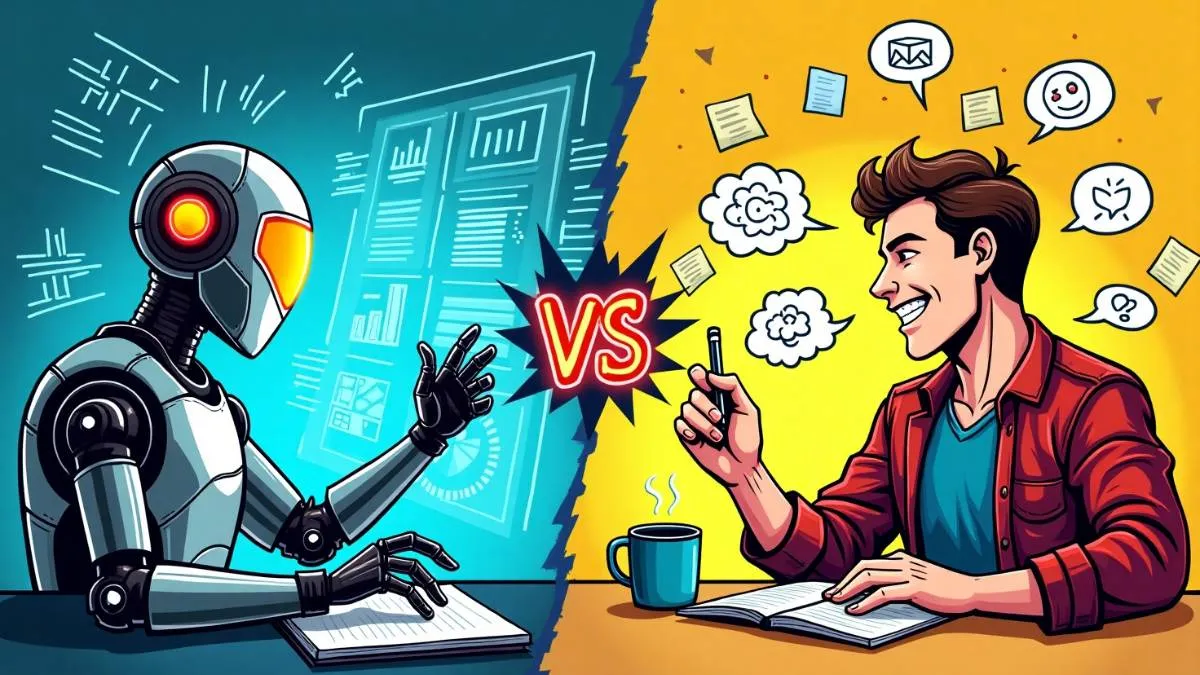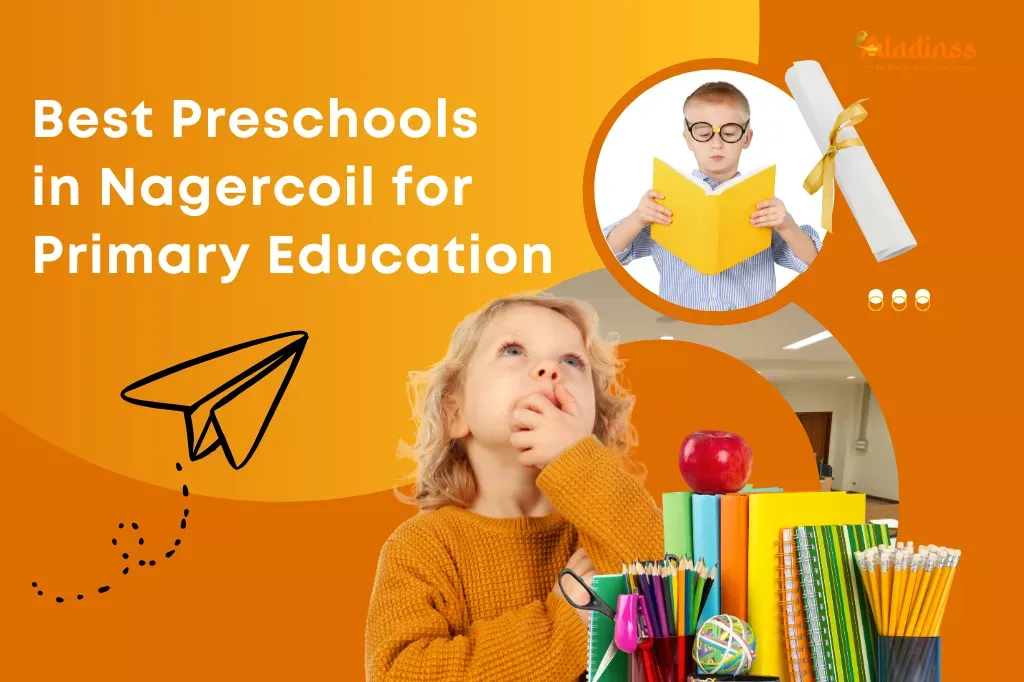
AI vs Human Content: How Marketers Are Earning 22% Higher ROI in 2025
AI vs Human Content: The Winning Formula for Marketers in 2025
In the evolving landscape of content marketing, the debate over AI vs human content rages on, but the real story isn't replacement-it's reinvention. Far from dooming marketers, AI is dismantling outdated workflows, enabling teams to produce more strategic, high-impact material. With 90% of content marketers planning to adopt AI by the end of 2025, and 88% already using it daily, the focus has shifted to hybrid strategies that amplify human creativity. This isn't about churning out volume; it's about crafting content that cuts through the digital clutter with authenticity, depth, and relevance. As audiences crave substance over superficiality, mastering the AI vs human content balance is key to driving engagement, trust, and ROI in a noise-filled world.
The AI marketing market alone is valued at $47.32 billion in 2025, growing at a staggering 36.6% CAGR, underscoring its transformative power. Yet, 79% of CMOs see AI as essential for competitive advantage, precisely because it frees humans for high-value tasks like ideation and storytelling. This article dives into the dynamics of AI vs human content, exploring best practices for integration, workflow overhauls, and strategies that ensure your content not only performs but resonates. Whether you're optimizing for SEO or building brand loyalty, the hybrid model-leveraging AI's speed with human insight-is the path to sustainable success.
Gone are the days of fearing AI as a job-killer; instead, it's a collaborator boosting productivity by 1284% in content delivery. But as 74.2% of new webpages now feature AI-generated elements, the challenge lies in elevating it beyond generic filler. Human oversight ensures originality, emotional connection, and strategic alignment, turning potential pitfalls into powerful advantages. Let's unpack how to harness this synergy.
Key Takeaways: Navigating AI vs Human Content in 2025
The integration of AI into content marketing isn't optional-it's imperative. Over 79% of companies plan to expand AI adoption this year, recognizing its role in accelerating production while preserving human essence. However, success hinges on avoiding pitfalls like treating AI as a shortcut. Instead, view it as a system enhancer: 57% of marketers use AI for drafting, but only when layered with human editing does it yield 22% higher ROI.
Today's winning content is precise, structured, and infused with perspective-far beyond mere keywords. With 67% of marketers leveraging AI for efficiency, the emphasis is on personalization and voice, where human input drives 47% better click-through rates. Strategic deployment-AI for ideation and optimization, humans for nuance and trust-creates a balanced ecosystem. Ultimately, relevance trumps frequency: content that solves problems and builds connections outperforms the rest.
Managing the AI Content Flood: Strategies for Differentiation
AI has democratized content creation, with 71.7% of marketers using it for outlining and 57.4% for drafting, leading to unprecedented volume. Yet, this flood risks saturation: 74.2% of new pages are AI-influenced, but much lacks soul, resulting in identical, shallow narratives that audiences ignore. The antidote? Prioritize quality over quantity-content that offers unique viewpoints, deep insights, and audience empathy.
Effective AI vs human content differentiation involves injecting human elements: original frameworks, contextual nuance, and experiential storytelling that AI can't replicate. Search engines like Google reward this, favoring structured, expert-driven pieces with E-E-A-T signals over keyword-stuffed noise. As one expert notes, "AI drafts fast, humans polish for nuance and trust". Teams succeeding in 2025 use AI for speed but humans for substance, achieving 36% YoY growth versus 11% for human-only approaches.
To combat the noise, focus on specificity: 83% of B2B firms believe AI enhances SEO when human-curated. Incorporate proprietary data, user stories, and bold opinions to create "signal in the noise." Recent X discussions echo this, with creators emphasizing hybrid models for authentic engagement. The result? Content that not only ranks but resonates, turning passive readers into loyal advocates.

Rebuilding Your Content Workflow: AI and Human Synergy
AI accelerates workflows, cutting a 1500-word post from 8-10 hours to under 2, but it reshapes roles rather than eliminates them. Content pros now focus upstream on strategy-aligning with goals, audience insights, and brand narratives-while AI handles downstream tasks like formatting and optimization. This pivot fosters agility: 69% of marketers report faster campaigns with AI, freeing bandwidth for creative depth.
Best practices from industry leaders emphasize hybrid models: Start with human-led planning, then deploy AI for execution. As noted in recent analyses, "Leverage AI for heavy lifting, but refine with human touch to remove robotic language". This ensures consistency without burnout, with teams reporting 57% efficiency gains. Downstream, AI repurposes assets-turning blogs into social snippets or emails-extending reach while humans curate for relevance.
Ideation: Where Humans Lead, AI Accelerates
Ideation remains a human stronghold, where strategy and originality shine. AI excels at scanning trends-using tools like BuzzSumo or Ubersuggest to surface gaps in seconds-but lacks the intuition for groundbreaking angles. 68% of marketers use AI for ideation support, yet human oversight ensures alignment with brand voice and audience pain points.
Best practice: Begin with human brainstorming sessions to define POVs, then feed AI refined prompts for keyword clusters and competitor analysis. This hybrid yields 41% more engaging content. As X users note, "AI drafts fast, humans polish for strategy", preventing generic outputs. The result? Ideas that resonate, backed by data-driven validation.
Real-Time Feedback: AI as Your Smart Editor
AI's real-time capabilities transform editing, with tools like Clearscope and Surfer SEO scoring for depth and intent-57% of teams rely on this for refinements. Humans then layer nuance, ensuring emotional hooks and factual accuracy that boost trust.
Pro tip: Use AI for initial audits, then human review for voice alignment-reducing rewrites by 50% while lifting performance 22%. This loop catches shallow drafts early, elevating AI vs human content to expert-level quality.
Brand Voice: Humans Define, AI Amplifies
AI risks homogenizing voice, but fed with human-curated examples-tone guides and phrase libraries-it maintains authenticity. 82% of marketers find AI output as good as human when prompted properly, yet human fine-tuning prevents "robotic" pitfalls, as 52% of consumers disengage from suspected AI content.
Best practice: Develop prompt templates with guardrails, then edit for personality-driving 47% higher CTRs. This ensures AI vs human content harmony, preserving the "human touch" audiences crave.
Content Repurposing: Scaling Ideas with AI Efficiency
Repurposing maximizes ROI, with AI turning blogs into threads or videos in minutes-57% of teams use it here. Humans guide adaptation for platform fit, ensuring contextual relevance.
Strategy: Human outlines core message, AI generates variants; review for tone-extending reach 34% without dilution. This turns single assets into ecosystems, amplifying human creativity at scale.
Graphics and Multimedia: Visuals That Amplify Impact
AI tools like Midjourney cut graphic production time by 75%, but humans ensure brand alignment and emotional resonance-key for 61% of AI overviews using lists for scannability.
Integrate early: AI drafts visuals, humans refine for storytelling-boosting engagement 50-60% in visual search. This multimedia blend enhances parseability for AI engines, elevating visibility.
SEO Formatting: Automation Meets Human Precision
AI streamlines meta, schema, and alt text-Gartner predicts 37% more teams using it by 2025-but humans optimize for intent, avoiding overstuffing.
Practice: AI suggests tweaks via SERP data; human verifies-improving rankings 34%. This ensures technical SEO supports strategic goals.
The New Era of AI-Optimized Content: Characteristics of Success
AI-optimized content thrives on expertise, structure, and utility-25% of marketers report it outperforms human-only. It features proprietary data, clear formatting, and brand perspective, rewarding with 90% predictive accuracy.
Hybrid wins: AI drafts 70%, humans refine 30% for connection-driving backlinks and conversions. In 2025, it's about relevance: 85% of pros find AI successful when human-led.
AI's Impact on Content Distribution: Optimizing for Humans and Machines
Distribution now targets dual audiences: humans and LLMs. Metadata and schema boost citability-69% of marketers prioritize this. Repurpose with AI for platforms, humans tailor tone for 41% more revenue.
Tools like Buffer automate scheduling; human strategy ensures timeliness-flattening 34% more scheduling inconsistencies. This dual optimization maximizes reach in an AI-curated world.
Staying Ahead: Trends and Agility in AI Content Marketing
Agility trumps rigidity: Track trends with Exploding Topics, test with A/B-Gartner forecasts 37% AI growth. 72% of orgs use AI for creation, but human adaptability ensures relevance.
Future: Ethical AI with transparency builds trust-16% trust fully AI sites. Hybrid vigilance keeps you ahead.
Conclusion: The Hybrid Path Forward
AI vs human content isn't a battle-it's a partnership propelling marketing forward. With 90% adoption looming, blend AI's velocity with human insight for 22% ROI gains. Refine strategies now: human-led, AI-enhanced content rises above.
In 2025's deluge, intentional, structured pieces prevail-empowering brands to connect authentically amid the AI revolution.
Comment / Reply From
You May Also Like
Popular Posts
Newsletter
Subscribe to our mailing list to get the new updates!





